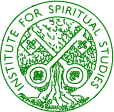
|
|
Thomas Cranmer —
|
|
On Saturday the 13th of May, the Institute for Spiritual Studies held an all-day seminar on that major figure in church history, Thomas Cranmer (1489 - 1556). It was a stimulating and well-attended event. The seminar commemorated the 450th anniversary of Cranmer's martyrdom. The three speakers were, the Rev'd Dr Craig D'Alton, the Rev'd Professor Robert Gribben, and the Rev'd Dr Austin Cooper. Craig began by asking various questions. Did the English reformation happen? If so, was it a single event or a process? Was it cohesive, positive, necessary, inevitable, God-intended? Who were the main players and what did they think they did? In his very carefully referenced address, Craig quoted a variety of historical sources from the past and present day to show how historians' attitudes to these issues have changed in different eras. The first post-Cranmer historian was actually John Foxe who, in his 'Book of Martyrs', saw the "English reformation as the triumph of Protestant right over Catholic wrong." He emphasized the factor of nationalism and painted a picture of the mythology around the last days of Cranmer, who was executed by Queen Mary the First's government after wavering in his opinions. Craig showed how attitudes have altered over the last 450 years, with official (now often local) records being opened up, and with modern reactions against the 'Great Men of History' approach. For example, he noted how between 1965 and 2005 there has been a lively debate among historians about what English people thought of the changes introduced by Cranmer and others. Local impact and social histories continue to be investigated. It was stated that the English Prayer Book is Cranmer's major legacy, but other factors about him are also important. Craig spoke of a "mild-mannered academic who went into politics", in fact "royal service". With that 'bully boy', Thomas Cromwell, he "set up royal supremacy". Ironically, in disobeying the demands of Queen Mary's government, he "betrayed his obedience to the monarch to gain truth", as he saw it. Among other details mentioned, Cranmer, although never visiting his See of Canterbury, had the Beckett Shrine and cult demolished. He also intended to revise canon law, and there was a chance that, had he lived, Cranmer may have produced another prayer book draft by 1562. Members of Parliament supported the dissolution of the monasteries in the 1530s and 1540s because they themselves benefited directly in wealth and power. The agents of change were the laity: the gentry, knights and esquires. Robert Gribben, in a witty contribution, looked at the European background to the Cranmerian changes, as seen in Cranmer's correspondence with other Protestant reformers. Robert said that Cranmer had "a piecemeal approach" to the whole matter of liturgical reform. While Calvin and Zwingli were key reformers in different cities, Luther at first was reluctant to revise the liturgy at Wittemberg. It is interesting that Cranmer married a Lutheran wife, the niece of a reformer. Robert believes that Cranmer's language helps us to think about God. He noted how, as each church today now looks at its own history, party division disappear. The same scholarship has fed into different churches undergoing liturgical renewal. Robert then looked in some detail at the complexity, the poetry, and the theology of the General Confession as it was written by Cranmer in the 1549 and 1552 Morning and Evening Prayer services of the Prayer Book. He noted the Strasbourg influences on the prayer itself. The Wesleys praised the "pure, strong, elegant" language of the 1662 Book of Common Prayer, and abridged the book for the use of Methodists. The Scottish Reformed leaders used the 1552 book too, at first. Later the Scottish Kirk moved more towards long sermons and extempore prayers. Austin Cooper noted the Roman Catholic use of Cranmer in the Book of Divine Worship, as well as use by the Unitings, Presbyterians and Unitarians. He talked in detail about the structure and language of the Cranmerian 'Prayer of Humble Access', beginning "We do not presume to come to this thy table trusting in our own righteousness ..." He spoke of Cranmer as "an inadvertent Anglican" who was moving with the times. Those who attended this excellent seminar, including a keen group from the Prayer Book Society, were assuredly reminded of the riches of the Anglican heritage. We were stimulated to look again at those heady 16th century days when the church and state altered so dramatically, when issues of liturgy, theology, canon law and other issues of faith and morals came to change in Western Christendom. The relationship, as witnessed by the busy correspondence, between Cranmer and continental reformers is an area which, in these more seriously ecumenical days, is well worth more investigation by ourselves at our leisure.
This site is hosted by St Peter's Eastern Hill,
Melbourne, Australia. |